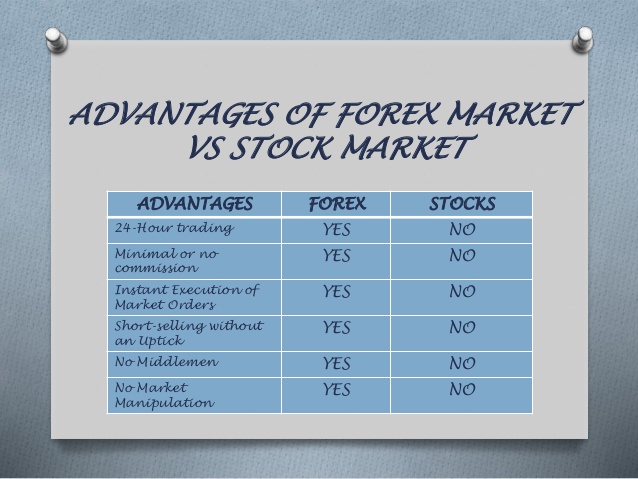
You may have been considering buying shares of stock that pays a regular dividend. Dividends can be regular payments made by companies to shareholders in a way that rewards them for investing in stock. If you invest $30, you can expect to get up to 60% of the company’s profits each year. You would get $60 in dividends if you owned the stock for five consecutive years.
Investing in dividend stocks
Dividend stocks offer a great opportunity to make a secondary income during turbulent market times. While capital appreciation is the main source of stock income, dividends can be used to supplement it with a steady income. Dividend stocks need to be balanced, with long-term potential for value growth and low volatility. Dividend stocks offer stability and growth but also allow you to have some control over your investment portfolio.
The main benefit to dividend stock investment is the consistent dividend payout. Dividends can be paid out of profits or operating capital and they will increase over time. You will be taxed on dividends, which are considered income. To invest in dividend stocks, you'll want to use a brokerage account. Online brokerages offer the most convenient trading options. You can invest in dividend stocks using a variety of investment platforms, including online brokerages.

How to find out if a company pays dividends
A classic board game where you roll a dash to see if dividends are paid by a company. If you land on your right side, you will win the game. You instantly become rich and you have no economic headwinds. But, reality is often quite different. When investing in dividend-paying companies, there are many things to remember. For information about dividend payments, make sure you check the annual report of the company, Form 10-K.
Dividends are an essential part of any stock's return. They should be one factor that investors should take into consideration. S&P Dow Jones Indices research revealed that the dividends made up about one third of the S&P 500’s total return between 1926 & 2012. This large percentage means that you need to consider the dividend payouts of any company before investing. Companies that pay out more dividends should be considered.
Calculating a payback time
There are two methods that can be used for determining the payback periods for dividend investments. One method divides the total investment by the annual cash flows. To account for loss in value over time, another method adds taxes to the total investment. Whatever method you choose to use, your goal is to maximize cash flow for a specific period. There are downsides to both. Each can have very long payback periods, so make sure you weigh them carefully.
While the payback time formula is helpful for investors it only accounts for the time period before the initial investment is recouped. The payback periods for dividends take into account earnings after the initial investment. These earnings are a key factor in determining the investment's long-term value. A stock portfolio with a four year payback period might not prove profitable in the second year. Investors should instead invest in bonds, real property, or other investments with a longer payback period.

Monitoring dividend growth
You can maximize your return by choosing dividend-paying stock investments. Because dividend-paying stocks offer constant payouts, many investors find success. Dividend-paying stocks can increase the stock's value as well as increasing its dividends. Investors are attracted to companies that pay higher dividends. The dividend yield is something to be aware of. Dividend yield can be defined as the percentage of money that a company distributes per share each year divided by the stock's value on a specific date.
Dividend-paying stocks are a great way to increase your income if you're an income-focused investor. Dividend-paying stocks can be large and have lots of cash but they are not able to compete with the rapid growth of fast-growing businesses. These dividends offer attractive returns for older and younger investors. It is worthwhile to keep an eye on their dividend growth.
FAQ
How do people lose money on the stock market?
Stock market is not a place to make money buying high and selling low. It's a place where you lose money by buying high and selling low.
The stock exchange is a great place to invest if you are open to taking on risks. They may buy stocks at lower prices than they actually are and sell them at higher levels.
They hope to gain from the ups and downs of the market. They might lose everything if they don’t pay attention.
What is the difference between the securities market and the stock market?
The entire list of companies listed on a stock exchange to trade shares is known as the securities market. This includes stocks, options, futures, and other financial instruments. Stock markets are usually divided into two categories: primary and secondary. Primary stock markets include large exchanges such as the NYSE (New York Stock Exchange) and NASDAQ (National Association of Securities Dealers Automated Quotations). Secondary stock markets allow investors to trade privately on smaller exchanges. These include OTC Bulletin Board Over-the-Counter (Pink Sheets) and Nasdaq ShortCap Market.
Stock markets have a lot of importance because they offer a place for people to buy and trade shares of businesses. The price at which shares are traded determines their value. New shares are issued to the public when a company goes public. Investors who purchase these newly issued shares receive dividends. Dividends are payments that a corporation makes to shareholders.
Stock markets provide buyers and sellers with a platform, as well as being a means of corporate governance. Boards of directors are elected by shareholders to oversee management. Boards make sure managers follow ethical business practices. If the board is unable to fulfill its duties, the government could replace it.
What are the pros of investing through a Mutual Fund?
-
Low cost - buying shares directly from a company is expensive. A mutual fund can be cheaper than buying shares directly.
-
Diversification: Most mutual funds have a wide range of securities. If one type of security drops in value, others will rise.
-
Management by professionals - professional managers ensure that the fund is only investing in securities that meet its objectives.
-
Liquidity – mutual funds provide instant access to cash. You can withdraw money whenever you like.
-
Tax efficiency - mutual funds are tax efficient. You don't need to worry about capital gains and losses until you sell your shares.
-
There are no transaction fees - there are no commissions for selling or buying shares.
-
Mutual funds are easy-to-use - they're simple to invest in. All you need is a bank account and some money.
-
Flexibility - you can change your holdings as often as possible without incurring additional fees.
-
Access to information- You can find out all about the fund and what it is doing.
-
Investment advice - you can ask questions and get answers from the fund manager.
-
Security – You can see exactly what level of security you hold.
-
You can take control of the fund's investment decisions.
-
Portfolio tracking - You can track the performance over time of your portfolio.
-
Easy withdrawal - it is easy to withdraw funds.
What are the disadvantages of investing with mutual funds?
-
There is limited investment choice in mutual funds.
-
High expense ratio - Brokerage charges, administrative fees and operating expenses are some of the costs associated with owning shares in a mutual fund. These expenses can impact your return.
-
Lack of liquidity: Many mutual funds won't take deposits. They must be bought using cash. This limit the amount of money that you can invest.
-
Poor customer service - There is no single point where customers can complain about mutual funds. Instead, you need to contact the fund's brokers, salespeople, and administrators.
-
Rigorous - Insolvency of the fund could mean you lose everything
Who can trade in stock markets?
Everyone. Not all people are created equal. Some people have better skills or knowledge than others. They should be recognized for their efforts.
There are many factors that determine whether someone succeeds, or fails, in trading stocks. If you don't understand financial reports, you won’t be able take any decisions.
This is why you should learn how to read reports. You need to know what each number means. It is important to be able correctly interpret numbers.
This will allow you to identify trends and patterns in data. This will assist you in deciding when to buy or sell shares.
If you're lucky enough you might be able make a living doing this.
What is the working of the stock market?
Shares of stock are a way to acquire ownership rights. The shareholder has certain rights. He/she may vote on major policies or resolutions. He/she can seek compensation for the damages caused by company. He/she may also sue for breach of contract.
A company cannot issue more shares than its total assets minus liabilities. It is known as capital adequacy.
A company that has a high capital ratio is considered safe. Low ratios make it risky to invest in.
Statistics
- "If all of your money's in one stock, you could potentially lose 50% of it overnight," Moore says. (nerdwallet.com)
- The S&P 500 has grown about 10.5% per year since its establishment in the 1920s. (investopedia.com)
- US resident who opens a new IBKR Pro individual or joint account receives a 0.25% rate reduction on margin loans. (nerdwallet.com)
- For instance, an individual or entity that owns 100,000 shares of a company with one million outstanding shares would have a 10% ownership stake. (investopedia.com)
External Links
How To
How can I invest in bonds?
You will need to purchase a bond investment fund. Although the interest rates are very low, they will pay you back in regular installments. These interest rates can be repaid at regular intervals, which means you will make more money.
There are several ways to invest in bonds:
-
Directly purchasing individual bonds
-
Purchase of shares in a bond investment
-
Investing through an investment bank or broker
-
Investing through a financial institution.
-
Investing through a pension plan.
-
Directly invest with a stockbroker
-
Investing through a Mutual Fund
-
Investing in unit trusts
-
Investing with a life insurance policy
-
Private equity funds are a great way to invest.
-
Investing using an index-linked funds
-
Investing via a hedge fund